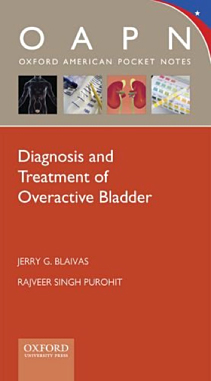Post-Prostatectomy Incontinence
The most common cause of incontinence in men is radical prostate surgery for cancer. Radical prostatectomy is complete removal of the prostate, which is performed only for prostate cancer. Incontinence which occurs after radical prostatectomy is called post-prostatectomy incontinence (PPI). The prostate itself contains much smooth muscle and contributes to overall sphincteric function. It is no surprise then, that when the prostate is removed, part of the sphincter is removed with it. This is unavoidable and after prostate surgery continence depends upon the remaining sphincter muscles, which are left in the wall of the urethra after the prostate has been removed.
What are the risk factors for post-prostatectomy Incontinence?
There are two factors that conspire to cause PPI – the skill of the surgeon and the extent to which the prostate cancer itself has involved the sphincter. All things being equal, highly skilled and experienced surgeons have many fewer complications and much less incontinence than less skilled or experienced surgeons. However, very often, all things are not equal. More experienced surgeons are more often referred more complicated or more advanced patients. It is possible that, in those circumstances, the complication rate and incontinence rate of the experienced surgeon is even higher than the less experienced surgeons report. But that is because of the complexity and advanced disease of the patient. Thus, you can’t just compare complication rates when choosing a surgeon; it’s more complicated than that.
Can Post-Prostatectomy Incontinence Improve on its own?
When sphincteric incontinence occurs as a consequence of prostate surgery, there is a very good likelihood that, over the course of time, the sphincter will heal itself and incontinence will no longer be a problem. Unfortunately, this healing process may take an extended period of time, sometimes a year or more from surgery and in 5 – 30% of patients, incontinence persists and becomes a frustrating clinical problem for the patient.
After radical prostatectomy, most men develop some degree of incontinence, at least for a few days or weeks and, in the majority, normal urination returns within a matter of weeks or months. However, when incontinence persists, it is impossible to predict whether or not it will subside spontaneously. Thus, conservative treatment should be instituted for as long as necessary until the condition either heals or it becomes obvious that no further improvement is taking place.
When should you consider Surgery to correct Post-prostatectomy Incontinence?
For practical purposes, it is unwise to consider invasive or surgical treatment until 9-12 months has elapsed since the onset of the urinary incontinence. Thus, treatment is divided into two stages a “temporizing” stage and a definitive stage.
What else can cause post-prostatectomy Incontinence?
Post-prostatectomy incontinence can be caused by sphincter malfunction, involuntary bladder contractions or urethral obstruction. Involuntary bladder contractions may be caused by many different conditions – urinary tract infection, a blockage in the urethra, bladder stones, cancer of the bladder, or retained stitches or other foreign bodies accidentally left over from the surgery. Further, there may be a neurologic condition, unrelated to the surgery, which causes the involuntary bladder contractions. Sometimes men develop such conditions after surgery, but more often they were present beforehand, but go undiagnosed because they were so subtle. From a diagnostic standpoint, most people who complain of a constant, dribbling, gravitational or stress induced incontinence have sphincteric incontinence and most who complain of urinary frequency, urgency and urge incontinence have a involuntary bladder contractions. However, there may be considerable overlap between these two conditions and both may coexist in the same patient. Another cause of post-prostatectomy incontinence is urinary retention with overflow incontinence. In this condition, there is either a severe urethral blockage or a weak bladder, which results in incomplete bladder emptying. What urination there is really just an overflow because the main problem is the retention of urine in the bladder. The symptoms, marked urinary frequency and a weak, interrupted or dribbling stream can be confused with urinary tract infection or a primary problem of incontinence.
Another bladder condition that can cause incontinence is low bladder compliance. A complete list of the possible causes of post-prostatectomy incontinence is below.
Common causes of post-prostatectomy urinary incontinence
- Sphincteric incontinence
- Involuntary bladder contractions
- Urinary tract infection
- Urethral stricture or scar
- Cancer of the bladder
- Bladder stones
- Retained sutures (stitches)
- Low bladder compliance
- Neurologic conditions (stroke, Parkinson’s disease, multiple sclerosis)
- Urinary retention with overflow
———
Why Choose a Uro Center Urologist in New York?
The urologists at the Uro Center in New York are experts in their field, bringing academic and research based innovation to the clinical forefront. Our urology team specializes in areas of treatment such as: robotic surgery, reconstructive urology, men’s health & infertility, kidney stones, urologic oncology, penile implant surgery, urethral stricture, BPH, Urinary incontinence treatment, Mesh complications, Enlarged prostate treatment, Urodynamics, vesicovaginal fistula and female incontinence in New York.
Request an Appointment











